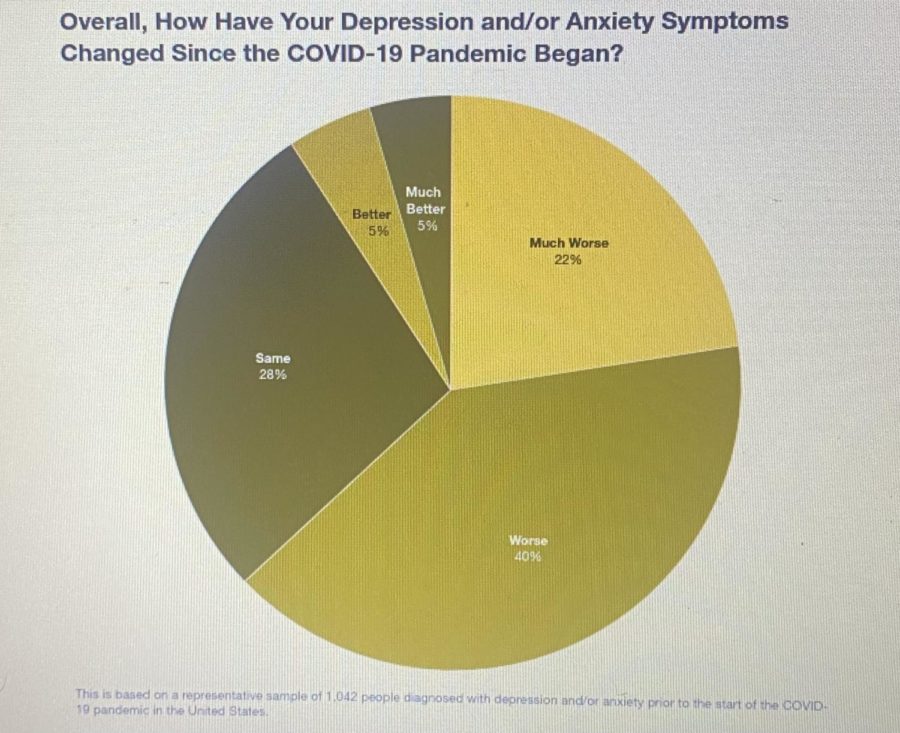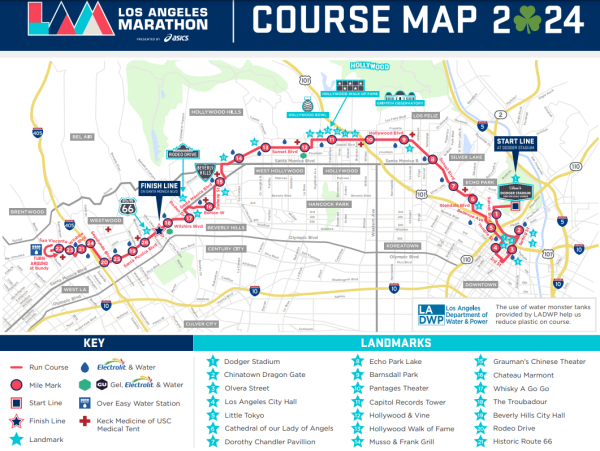COVID-19’s Affect on the Mentally Ill
This chart shows that out of 1042 surveyed, 62% say that their symptoms of anxiety have gotten worse since the start of the pandemic.
January 24, 2022
COVID-19 has taken the globe by storm, changing the way people live their daily lives. From stores and restaurants closing down, schools moving between in person and online learning, and taking extra precautions in our actions like wearing masks and socially distancing, life as we know it has temporarily changed. When people think of COVID-19, they mainly think of the virus itself and the effect it has to those who get it, but there is another group of people who face a different kind of struggle with the virus who many people might not have thought of. People who suffer from anxiety and paranoia have especially faced struggles since the emergence of this virus.
COVID has caused people to face anxiety-like symptoms. The fear of losing your job, contracting a deadly disease, and the mental effects of isolation have forced people to experience new feelings of struggles they may have never felt before. However, people who already live with disorders like these in their daily life experience these feelings at an extreme level.
Anxiety disorder affects different people in different ways, but the general definition is a mental health disorder characterized by feelings of worry, anxiety, or fear that are strong enough to interfere with one’s daily activities. Introducing a never before discovered deathly virus that shows no certainty of what the future will bring heightened peoples feelings of worry and anxiety.
According to GoodRx Health, 62% of a total of 1000 people with anxiety ordered surveyed their symptoms to be “worse” or “much worse” compared to before the pandemic.
Many factors lead to this increase in their symptoms. The fear and worry of getting the virus can lead to people with anxiety to overthink and get paranoia, being too afraid to even leave their house, forcing them to be isolated with their thoughts of worry. Other factors include the loss of a job, which can lead to more issues surrounding financial concerns, all adding more stress to a person’s life.
Arguably the most significant factor that leads to more severe symptoms of anxiety is the self quarantine the U.S. issued in 2020. A typical symptom of anxiety is loneliness, according to GoodRx Health. COVID limiting the ability to see friends and family can resurface feelings of sadness that are often associated with loneliness.
Camille Khong (11), someone who faces the struggles of mental illness comments on the affect COVID has had on her and others saying
“ as someone who suffers from and knows many people who also have mental health issues, it is a joined struggle with the separation and constant anxiety of the current situation at hand. — Camille Khong
No doubt, COVID-19 is affecting everyone in different ways and to different extents. It is important to remember that some people are facing different kinds of struggles and to always be there for your friends and family, comforting them and reminding them that we are all in this together.






















